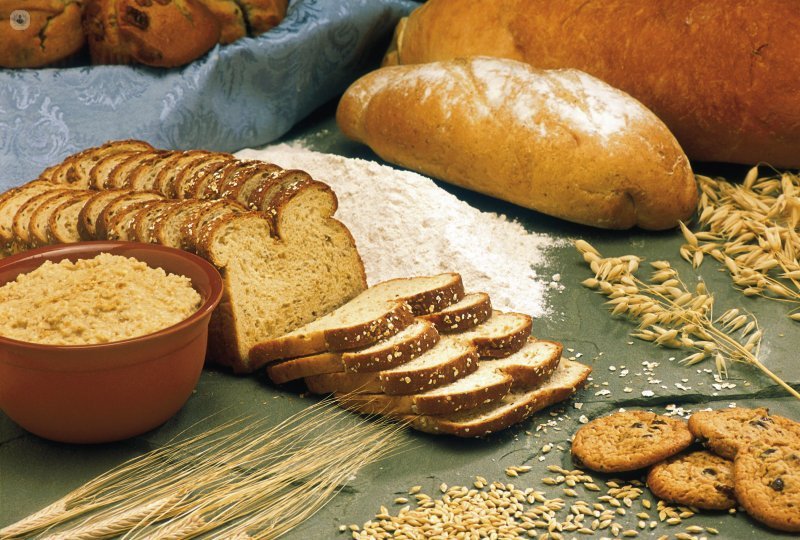Coeliac disease: symptoms, diagnosis and treatment
Written by:Coeliac disease (CD) is a digestive condition where there is a gluten-induced enteropathy. Gluten proteins in wheat, rye and barley cause the small intestine to become inflamed and the body is unable to absorb nutrients.
The condition is common. It affects 1% of the UK, Northern Europe and US populations, amounting to a combined 10.4 million people. The prevalence is even higher in some countries, such as Sweden (3%) and Ireland (2%). The condition is genetic with 10-15% of first-degree relatives being similarly affected.

What are the symptoms of coeliac disease and how is it diagnosed?
Coeliac disease (CD) can hinder the development of children. It can cause fatigue, lethargy, diarrhoea, psychological problems, and even stunt growth. Adults may experience diarrhoea, abdominal pain, fatigue, lethargy, psychological problems and it can also lead to recurrent miscarriages in women. Your GP can give you a simple blood test to see if you are gluten-intolerant. If the body produces an increased amount of antibodies it is a sign that that patient may suffer from coeliac and they will be referred to a gastroenterologist. The recommended blood tests quantify the amount of immunoglobulin A (IgA) in the blood as 1:600 individuals with CD are IgA deficient. Screening involves measuring IgA and IgG antibodies to transglutaminase (tTG) and endomysium which are usually raised on a normal gluten-containing diet. Nine percent of individuals with CD do not have elevated tTG and endomysium antibody levels. If the blood test is positive, the diagnosis is then made with a small intestinal biopsy and endoscopy. After a local anaesthetic is given, a small camera (endoscope) is passed through your mouth into the gut. The biopsy shows the damage to the gut lining, with the typical changes of coeliac disease including flattening of the epithelium with loss of the normal villous architecture.
How is coeliac disease treated?
The treatment of coeliac disease is a lifelong gluten-free diet which means the avoidance of wheat, rye, barley, and possibly oats, as only 10% of affected individuals are sensitive to them. Following an introduction of a gluten-free diet with the aid of an appropriately trained dietician, the symptoms settle and the body is able to absorb nutrients again. A repeat endoscopy and small intestinal biopsy are required, after four to six months on a gluten-free diet, to confirm improvement in the condition of the gut. Complications can include refractory coeliac disease, meaning that the small intestine does not heal even after a strict, gluten-free diet. Though this is very rare, it requires specialist assessment, and potentially, additional treatment.
What is non-coeliac gluten sensitivity?
Non-coeliac gluten sensitivity (NSCD) is a condition in which people complain of abdominal discomfort, diarrhoea and constipation in reaction to eating gluten, this affects up to 10% of the population. The treatment is also a gluten-free diet. Professor Ciclitira is currently undertaking research to investigate the disease pathogenesis and to generate improved more palatable gluten-free flour.


